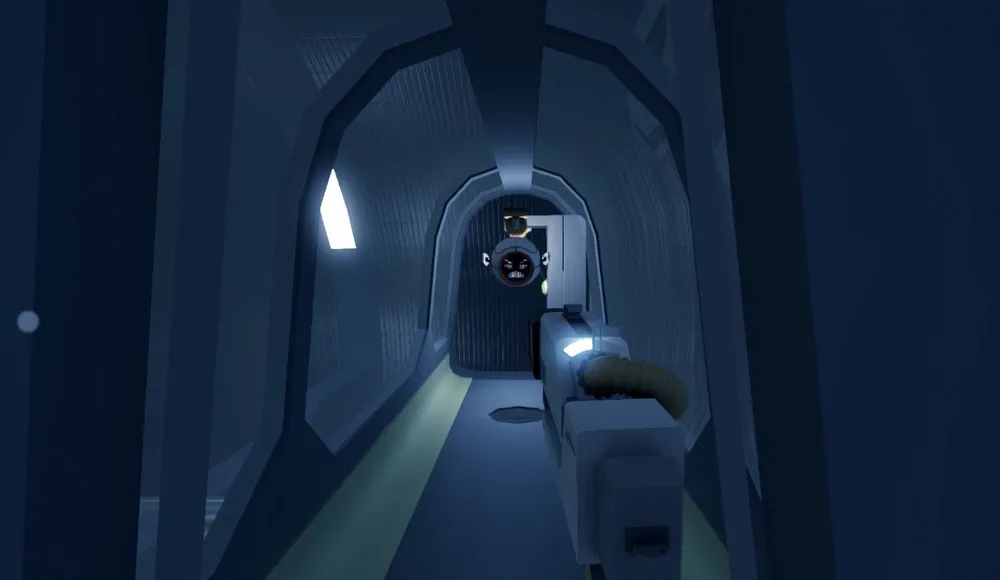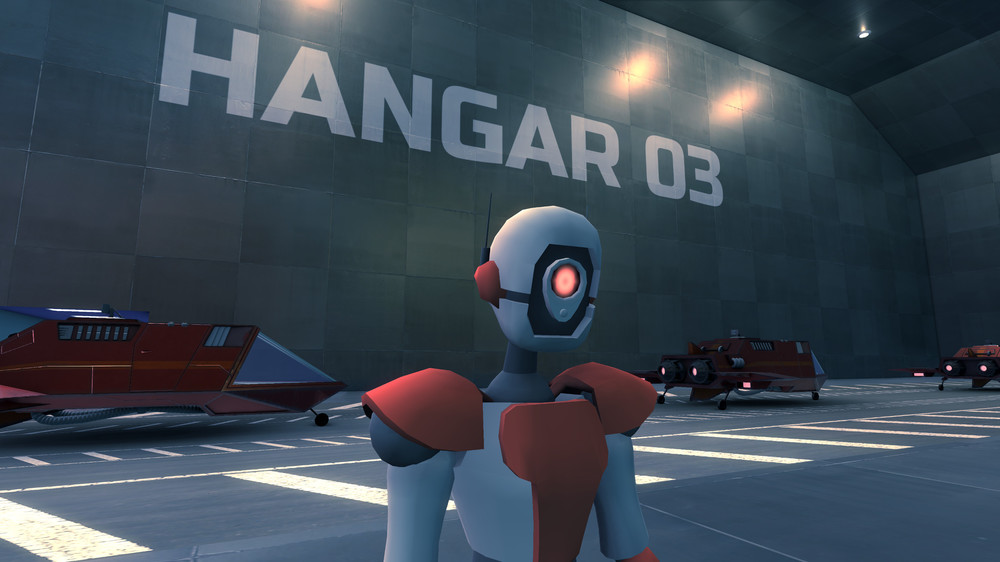If you’re anything like me, you’re a little sick of waiting on Valve to actually make a big game for VR. The Lab is a great showcase for the Vive, but it’s just a mini-game collection. I want something I can actually sink my teeth into and lose hours in, recapturing the many late nights we’ve all spent playing Half-Life and Portal. I might well get my wish next year, but indie developer Zulubo Productions has something that might tide us over in the meantime.
Vertigo feels like a VR tribute to Valve. It’s like a mix of the developer’s two celebrated series molded and beaten into shape to fit VR. All it needs is a sprinkling of Left4Dead and I’d be calling some lawyers.
That’s not to say Vertigo doesn’t have a lot of originality to it. The game starts as you head to Washington to investigate a series of strange lights, and you suddenly find yourself warped to a labyrinthine underground facility that houses a Quantum Reactor. You set about finding a means of escape, clearing different floors by solving environmental puzzles and defeating enemies using a stun baton in one hand and a laser pistol in the other.
You’ll also get a teleportation device that opens up portals you pull yourself through (one of the cooler locomotion techniques I’ve seen) and it also slows down time, which is handy for a number of puzzles.
Walking through the facility feels almost exactly like exploring Black Mesa in the original Half-Life. It’s a massive site with weaving corridors connecting enormous rooms littered with scientific equipment. You can even draw comparisons between the stun baton and Gordon Freeman’s iconic crowbar. All there’s there to differentiate it, ironically, is occasional and humorous intercom messages that invoke GLaDOS from Portal.
Vertigo wears its inspirations on its sleeves and that’s not a problem. Just attempting a Half-Life-like adventure makes it one of VR’s more ambitious indie games. The bigger environments are designed just as they would be in a 2D game, without the considerations of sluggish VR locomotion. Its’ refreshing to see that sort of scale in a first-person VR game, even if it is painfully slow to navigate, either through teleportation or using the grip buttons to walk forward.
It’s got the kind of variety in gameplay that you’d seek in one of those titles, too. In one room you’ll be fighting off swarms of robotic baddies with your back against the wall, while in the next you’ll have to navigate a flooded section to get to the other side.
Ultimately, though, the game’s just a little too rough around the edges to make it an absolute must play. Checkpoints, for example, are few and far between, and you’ll have to repeat a lot of gameplay to get back to where you died. That’s especially frustrating when death can come from simply being pushed off of the side of a ledge by accident, or being overwhelmed by the enemy with nowhere to hide and recover. An early boss fight is particularly annoying, making you swipe at incoming tentacles with demanding efficiency despite being given seconds to react.
There are also some confusing sections, like just before this boss. I survived a huge fall down a sheer drop and spent 10 minutes venturing down a cave, only to find it blocked. I must have spent a few hours exploring for the correct path before I finally realized I should have backtracked before the fall to trigger the next sequence. You get the sense the game needs a bit of a tidy up, one more look through to see what platforms and bad guys could be pulled from existence to ensure a smoother experience.
I’d be tempted to give Vertigo a higher score if the design was a bit tighter and I wasn’t sure that it will look a little dated very quickly. That’s not to say Zulubo Productions shouldn’t be very proud at what they’ve achieved here: a very decent stab at bringing a Half-Life-style adventure to VR. There aren’t many studios that can say they’re attempting that right now. For that reason alone, this is a game that deserves your support, but be prepared to put up with some rough spots.
You can purchase Vertigo from Steam at a price of $14.99 with official support for the HTC Vive with tracked motion controllers in either standing or room-scale configuration. Read our Game Review Guidelines for more information on how we arrived at this score.




























